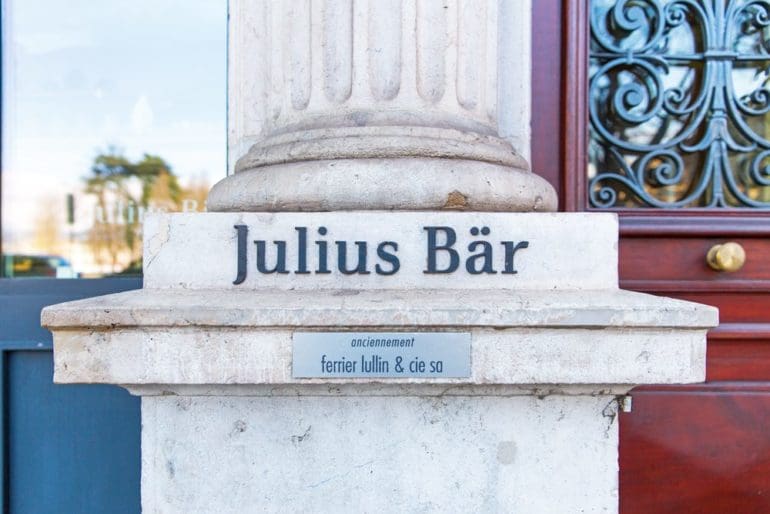Bank for wealthy customers will open offices in Manchester, Leeds and Glasgow in attempt to woo multimillionaire clients.
A Swiss bank that accepts only customers with at least £2m of assets is defying Brexit with plans to expand in the UK through new offices in Manchester, Leeds and Glasgow, reports The Guardian.
Julius Bär will also put a small team in Belfast as it ventures beyond its UK operations in London. It is expected to hire 30 financiers for the new locations.
The bank, which employs 200 people in London, said two-thirds of the UK’s wealth was held by individuals outside London and the south-east and that it was the opportunity to pull in new multimillionaire customers from the regions that had motivated its expansion plans.
The expansion is being announced at a time when other financial services firms are warning they will leave the UK as a result of Brexit and are preparing to move operations to other EU countries.
Deutsche Bank, for instance, which employs 9,000 in the UK, is expected to move up to 4,000 UK jobs to Frankfurt. US banks are also affected. Bank of America is expanding in Dublin, while JP Morgan Chase has bought a new office in Dublin’s docklands area that can house up to 1,000 staff.
But last week, Boris Collardi, Julius Bär’s chief executive, said Britain presented an opportunity for the bank.
“The typical high net worth individual in the UK is feeling very uncertain about the future in terms of assets, in terms of currency risk, in terms of diversification and in terms of how they should be positioning themselves in this market,” Collardi said.
Its wealth test for customers of £2m of assets is double that of some other private banks – Royal Bank of Scotland’s private bank, Coutts, usually demands £1m. Julius Bär hopes to attract entrepreneurs and business owners.
Swiss banks and other private banks have been mired in controversy over running tax avoidance schemes, but David Durlacher, chief executive of Julius Bär’s international operations, said their reputation was improving.
“Those days are largely over. The days of non-disclosure of assets are over,” he said, pointing to changes to Swiss secrecy laws and increased information-sharing among international jurisdictions.
In 2016, the bank reached a $547m (£417m) settlement with the US Department of Justice over what Collardi described at the time as a “regrettable legacy issue”. Two of its former bankers pleaded guilty in a Manhattan court to helping American clients dodge taxes.
Some of the staff hired for the expansion have been recruited from Barclays, which also has a banking business that targets wealthy individuals.
The Swiss bank has found premises in Manchester, Leeds and Glasgow; staff in Belfast will work remotely. “The newly hired relationship managers all have proven track records and will be joining Julius Bär over the coming months, operating out of premises that have been identified and which are expected to open later this year,” the bank said.
The UK operation is regulated by the Financial Conduct Authority, while the bank’s new offices will add to existing operations in Dubai, Frankfurt, Geneva, Hong Kong, London, Luxembourg, Milan, Monaco, Montevideo, Moscow, Mumbai, Singapore and Tokyo.
Other private banks are also said to be targeting the UK, where the pound’s fall could make it more attractive for foreigners to invest.
The rich are not being put off the UK as a result of Brexit. According to a report this year, the number of very wealthy individuals in Britain – those with more than $30m (£24m) in assets, who are called “ultra high net worth” clients – will rise by 30% to 12,310 over the next decade.


